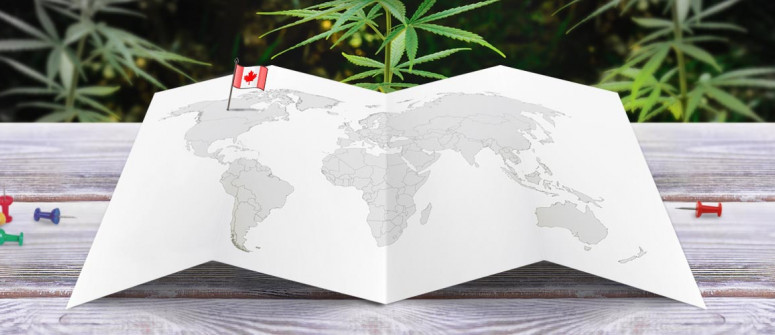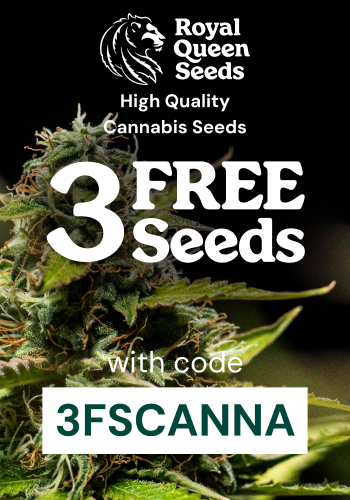Legal status of marijuana in canada

Find out about the legal status of medical and recreational marijuana in the state of Canada. Is marijuana illegal? Better safe than sorry!
Recreational cannabis was made legal in Canada on October 17th, 2018, with medical cannabis being legal since 2001. The country allows citizens to purchase cannabis online, in stores, and even allows them to cultivate a set number of plants in their own home.
A piece of legislation named the Cannabis Act catalyzed this shift in law. Adults in Canada can purchase cannabis flowers, oils, plants, and seeds from different retailers. Depending on the laws within a specific province or territory, customers have to buy their products from either state-owned outlets or private businesses.
Upon legalizing cannabis, the federal government left it up to individual provinces to decide how the herb would be sold. Cannabis is only legally accessible to adults 18 years and older, however, some provinces require the customer to be 19 or over.
Canadians can possess up to 30g of dried herb or equivalent in public, and can legally share up to 30g of flower with other adults.
ONLINE PURCHASES
Before legalization, the idea of being able to sit down at a computer and order cannabis to your door was the stuff of dreams, a joke that smokers would laugh about in the middle of a session. Now, it’s a reality, and a massive perk for both medicinal and recreational users.
Adults in all Canadian provinces can purchase cannabis online, but this must be done via state-owned corporations. Saskatchewan and Manitoba are the only exceptions to this rule, where citizens are able to buy cannabis online from privately owned businesses.
BRICK AND MORTAR STORES
Citizens of all provinces can purchase cannabis in person at a physical store, with the exception of the Nunavut territory. The Yukon territory, Northwest Territories, and the provinces of Quebec, Prince Edward Island, New Brunswick, and Nova Scotia sell cannabis in stores run by the state.
Citizens of Newfoundland, Alberta, Saskatchewan, Manitoba, and Ontario, on the other hand, are able to purchase cannabis from stores run by private businesses. British Columbia is the only province that allows both state-run and privately run cannabis stores.
Northwest Territories and Nova Scotia are the only provinces where customers can purchase cannabis from liquor stores.
GROWING AT HOME
Growing at home is a sign of relaxed cannabis laws, and Canadians of certain provinces have this privilege. Canadian adults can grow up to 4 plants per residence, yet this law does not depend on the amount of people living within a residence. Growers are required to take the necessary measures to prevent young children from accessing their crops.
Citizens of all provinces are allowed to grow cannabis at home, with the exception of those living in Quebec and Manitoba.
CRIMINAL PENALTIES STILL EXIST
Despite the relaxed cannabis laws in the country, the Cannabis Act features various criminal penalties for several offenses. Illegal distribution or sale of cannabis can result in tickets for small amounts, and up to 14 years in prison for severe breaches. Possession over the limit can result in fines for small quantities, and up to 5 years in prison for serious offenses.
Production of cannabis beyond personal cultivation limits or via combustible solvents can result in fines and up to 14 years in prison. Trafficking the herb across Canada’s borders can also result in a prison sentence of 14 years.
CANNABIS AND DRIVING
It is illegal to drive impaired in Canada, and there is zero tolerance for a person driving under the influence of cannabis. Police officers can test for the presence of THC within the blood using breathalyzer tests, and levels of 5 nanograms per ml of blood can land a person in serious trouble.
A driver caught with these levels of THC in their blood can face a minimum fine of $1000 for the first offense, 30 days in prison for a second offense, and a minimum of 120 days in prison for further offenses.
SMOKING IN PUBLIC
Smoking cannabis in public places faces similar legal limitations to smoking tobacco. Lighting up in smoke-free zones will get users in trouble, but smoking in open places such as parks where smoking tobacco is accepted may be okay in some areas. In most provinces, smoking cannabis is limited to home use.
.jpg)


.jpg)
